This article was co-authored by Kelli Miller, LCSW, MSW. Kelli Miller is a Psychotherapist based in Los Angeles, California. Kelli specializes in individual and couples therapy focusing on relationships, depression, anxiety, sexuality, communication, parenting, and more. Kelli also facilitates groups for those struggling with alcohol and drug addiction as well as anger management groups. She is the author of “Professor Kelli’s Guide to Finding a Husband” and the award-winning and best-selling book “Thriving with ADHD”. Kelli co-hosted an advice show on LA Talk Radio and is a relationship expert for The Examiner. She received her MSW (Masters of Social Work) from the University of Pennsylvania and a BA in Sociology/Health from the University of Florida.
There are 9 references cited in this article, which can be found at the bottom of the page.
This article has been viewed 15,292 times.
Sharing your life with someone you love is great. You have a constant partner in crime, you support each other through highs and lows, and you share responsibilities. Being somewhat codependent is part of any long-term relationship, but it’s important to have your own independence, too. If you feel like you’ve become fully dependent on your partner, rather than just receiving support from them, try some of these tips to regain your independence and strike a better balance between living your own life and sharing it with your partner.
This article is based on an interview with our relationship expert, Kelli Miller, licensed pyschotherapist and award-winning author. Check out the full interview here.
Steps
Expert Q&A
-
QuestionHow do you balance independence in a relationship?
 Allen Wagner, MFT, MAAllen Wagner is a licensed marriage and family therapist based in Los Angeles, California. He received his Master's in Psychology from Pepperdine University in 2004. He specializes in working with individuals and couples on ways they can improve their relationships. Along with his wife, Talia Wagner, he's the author of Married Roommates.
Allen Wagner, MFT, MAAllen Wagner is a licensed marriage and family therapist based in Los Angeles, California. He received his Master's in Psychology from Pepperdine University in 2004. He specializes in working with individuals and couples on ways they can improve their relationships. Along with his wife, Talia Wagner, he's the author of Married Roommates.
Marriage & Family Therapist Set aside some time for yourself! Self-care is incredibly important, whether it's playing a sport, doing a hobby, or visiting with friends.
Set aside some time for yourself! Self-care is incredibly important, whether it's playing a sport, doing a hobby, or visiting with friends. -
QuestionIs being independent bad for a relationship?
 Allen Wagner, MFT, MAAllen Wagner is a licensed marriage and family therapist based in Los Angeles, California. He received his Master's in Psychology from Pepperdine University in 2004. He specializes in working with individuals and couples on ways they can improve their relationships. Along with his wife, Talia Wagner, he's the author of Married Roommates.
Allen Wagner, MFT, MAAllen Wagner is a licensed marriage and family therapist based in Los Angeles, California. He received his Master's in Psychology from Pepperdine University in 2004. He specializes in working with individuals and couples on ways they can improve their relationships. Along with his wife, Talia Wagner, he's the author of Married Roommates.
Marriage & Family Therapist Not at all! You never want to neglect yourself or feel like you're trapped in your current relationship.
Not at all! You never want to neglect yourself or feel like you're trapped in your current relationship. -
QuestionHow do you know if you're codependent?
 Kelli Miller, LCSW, MSWKelli Miller is a Psychotherapist based in Los Angeles, California. Kelli specializes in individual and couples therapy focusing on relationships, depression, anxiety, sexuality, communication, parenting, and more. Kelli also facilitates groups for those struggling with alcohol and drug addiction as well as anger management groups. She is the author of “Professor Kelli’s Guide to Finding a Husband” and the award-winning and best-selling book “Thriving with ADHD”. Kelli co-hosted an advice show on LA Talk Radio and is a relationship expert for The Examiner. She received her MSW (Masters of Social Work) from the University of Pennsylvania and a BA in Sociology/Health from the University of Florida.
Kelli Miller, LCSW, MSWKelli Miller is a Psychotherapist based in Los Angeles, California. Kelli specializes in individual and couples therapy focusing on relationships, depression, anxiety, sexuality, communication, parenting, and more. Kelli also facilitates groups for those struggling with alcohol and drug addiction as well as anger management groups. She is the author of “Professor Kelli’s Guide to Finding a Husband” and the award-winning and best-selling book “Thriving with ADHD”. Kelli co-hosted an advice show on LA Talk Radio and is a relationship expert for The Examiner. She received her MSW (Masters of Social Work) from the University of Pennsylvania and a BA in Sociology/Health from the University of Florida.
Psychotherapist It might be really difficult for you to do things without your partner, or you feel like you constantly need your partner's approval or validation before doing something. You might also only feel good if you feel like you're needed in a relationship, or if you're setting yourself up to feel needed (either to rescue your partner or be rescued yourself).
It might be really difficult for you to do things without your partner, or you feel like you constantly need your partner's approval or validation before doing something. You might also only feel good if you feel like you're needed in a relationship, or if you're setting yourself up to feel needed (either to rescue your partner or be rescued yourself).
References
- ↑ Kelli Miller, LCSW, MSW. Psychotherapist. Expert Interview. 11 June 2020.
- ↑ https://www.insider.com/how-to-be-more-independent-in-a-relationship-2019-1#set-more-boundaries-2
- ↑ Allen Wagner, MFT, MA. Marriage & Family Therapist. Expert Interview. 24 September 2021.
- ↑ https://www.marriage.com/advice/relationship/be-independent-in-a-relationship/
- ↑ Allen Wagner, MFT, MA. Marriage & Family Therapist. Expert Interview. 24 September 2021.
- ↑ https://www.marriage.com/advice/relationship/be-independent-in-a-relationship/
- ↑ Allen Wagner, MFT, MA. Marriage & Family Therapist. Expert Interview. 24 September 2021.
- ↑ https://www.joinonelove.org/learn/how-to-maintain-healthy-independence-while-social-distancing-with-your-partner/
- ↑ https://www.thegoodtrade.com/features/maintaining-individuality-in-a-relationship
- ↑ https://psychcentral.com/blog/6-ways-to-become-more-independent-less-codependent#4
- ↑ Kelli Miller, LCSW, MSW. Psychotherapist. Expert Interview. 11 June 2020.
- ↑ https://psychcentral.com/blog/6-ways-to-become-more-independent-less-codependent#3
- ↑ https://www.thegoodtrade.com/features/maintaining-individuality-in-a-relationship
- ↑ https://www.thegoodtrade.com/features/maintaining-individuality-in-a-relationship
- ↑ Kelli Miller, LCSW, MSW. Psychotherapist. Expert Interview. 11 June 2020.
- ↑ https://www.insider.com/how-to-be-more-independent-in-a-relationship-2019-1#consider-working-with-a-therapist-5
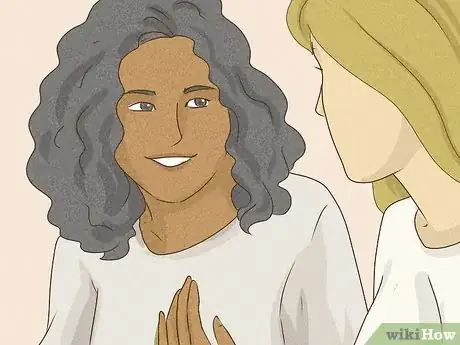

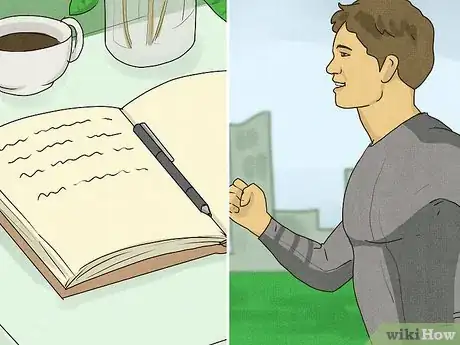


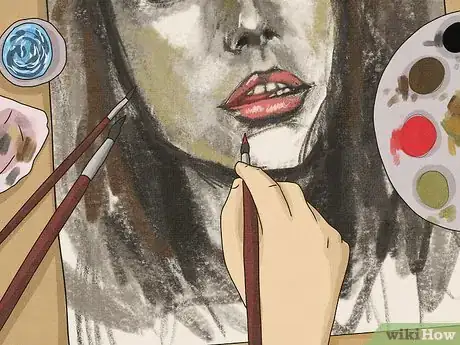
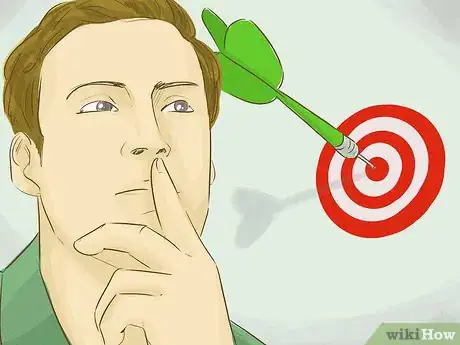

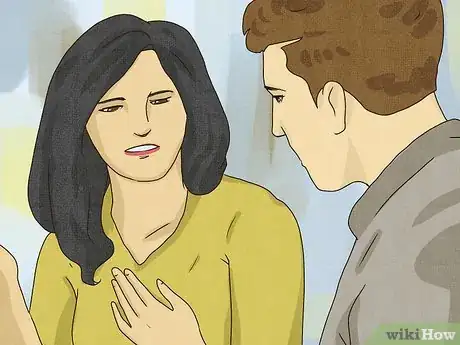
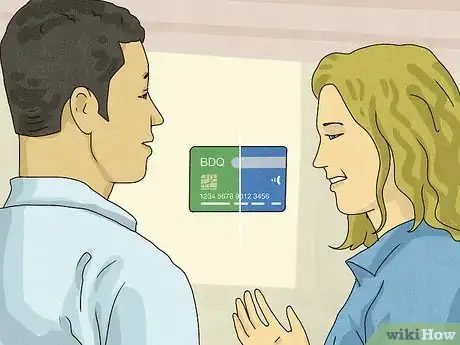

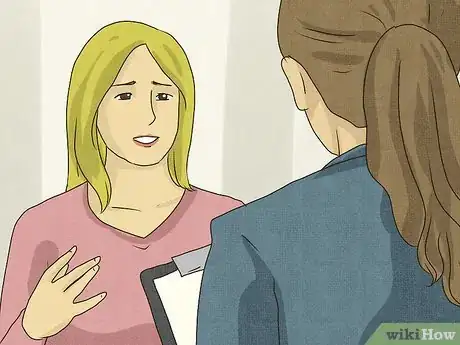







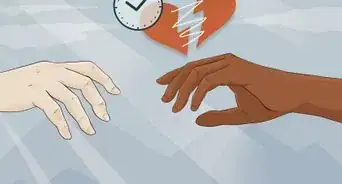



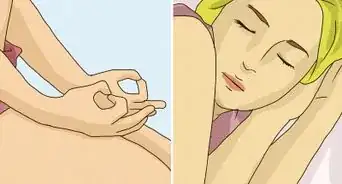

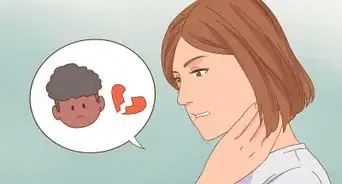













































Medical Disclaimer
The content of this article is not intended to be a substitute for professional medical advice, examination, diagnosis, or treatment. You should always contact your doctor or other qualified healthcare professional before starting, changing, or stopping any kind of health treatment.
Read More...